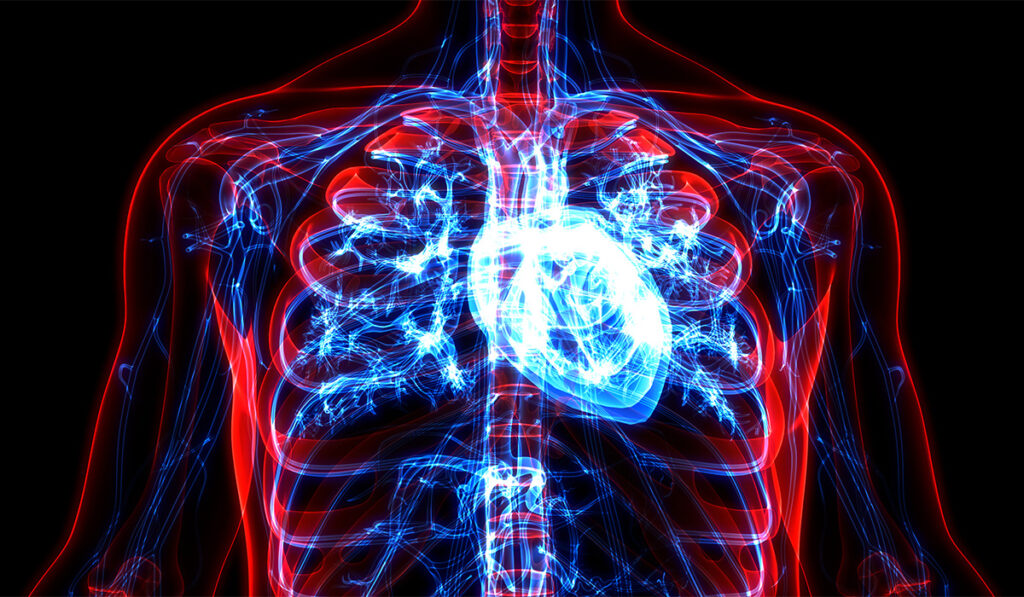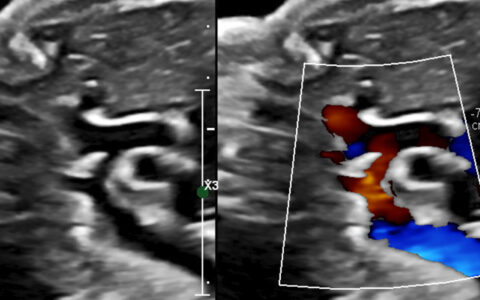The quest to mediate the body’s inflammatory response without triggering severe immunosuppression has led researchers down a number of investigative paths, including the more recent elucidation of a downstream healing function that plays a key reparative role.
Vanderbilt University Medical Center cardiologist and researcher Amanda C. Doran, M.D., Ph.D., is focused on mechanisms that aid inflammatory resolution in cardiovascular disease. She is co-author of a new paper that details the patho-biology of inflammation resolution in cardiovascular patients.
“For patients with hypercholesterolemia and atherosclerosis, we now have multiple medications, like statins, that drastically lower lipids — but this isn’t the whole story,” Doran said. “Mounting evidence suggests that even if cholesterol is optimally treated, inflammation can persist and worsen disease.”
Anti-inflammatory drugs such as anti-interleukin-1b therapies reduce the risk of heart attack and stroke, but also carry a higher risk of infection, she said.
“This may be problematic in an aging population,” Doran noted.
One of her mentees, doctoral student Azuah L. Gonzalez, uses genetic mouse models to uncover clues to dysregulated inflammation in atherosclerosis. In February 2024, Doran, Gonzalez and their team published a review article that details the patho-biology of inflammation resolution in cardiovascular disease.
“We hope that new pro-resolving therapies will be developed to complement lipid-lowering therapies, and that they will do so with a lower risk profile than those posed by today’s anti-inflammatories,” Doran said.
Damage That Lingers
The response to an injury begins with the release of pro-inflammatory cytokines and bioactive lipids, creating acute inflammation. When the insult has been eradicated, pro-inflammatory mediators are down-regulated, while pro-resolving mediators are produced to curtail the inflammatory response.
Doran notes that it had long been thought that the inflammatory response ended once an infection or injury was no longer acute, as though a light switch were turned back on to “normal.” But that notion has been debunked.
“One of the sequalae of poor cleanup is that the blood vessels continue to recruit immune cells into the tissue and their accumulation will form a necrotic core in plaque deposits,” she said.
In fact, Doran said, advanced atherosclerosis, particularly involving the type of plaque prone to cause cardiac events, is characterized by several features of defective resolution, including sustained inflammation, impaired efferocytosis, and large necrotic cores. The need to develop novel strategies to combat these effects without compromising host defense is clear.
Shifting Focus
The research team found mediators that enter the scene after the initial phase of inflammation not only promote resolution, but also augment functions such as efferocytosis. Unlike anti-inflammatory strategies, pro-resolving strategies do not appear to compromise host defense.
“If we find drugs that would improve the pro-resolving end of the process, we are making an impact without the negative side effects of immunosuppression,” Doran said.
“If we find drugs that would improve the pro-resolving end of the process, we are making an impact without the negative side effects of immunosuppression.”
She explains that in atherosclerosis, apoptotic cells may escape being “eaten” by expressing high levels of “don’t-eat-me” signals. An antibody that blocks this escape mechanism is currently in trials. Another approach could be to make the turn off the cells ability to send its protective signals.
“If you found a way to make the targets ‘tastier’ to the macrophages, you could promote termination of the general inflammatory response without having to completely block the immune system itself,” she said.
The team is planning extended research with the aim of developing a blueprint for such a targeted drug.
Long-term Consequences
Consequences of failed resolution can be long-term. Doran says that atherosclerotic risk factors like cholesterol levels can actually reprogram bone marrow progenitors, skewing them toward a more pro-inflammatory phenotype and inhibiting their flexibility to convert to the pro-resolving phenotype.
“Not only does poor resolution of inflammation affect a patient’s current immune system, but it can also affect the immune system that they’ll have in the future,” Doran said. “This has a powerful effect because, for many years to come, these skewed progenitors will give rise to mature immune cells that retain that pro-inflammatory phenotype.”
Doran’s team has begun collaborating with researchers in hypertension and heart failure, as well.
“We realize that what we know about resolution applies so much more broadly across cardiovascular disease than people realize,” she said. “We hope that by shining a light on the possibility of improving treatment of all these conditions, people will get excited, and we can globally move things forward as a field.”




